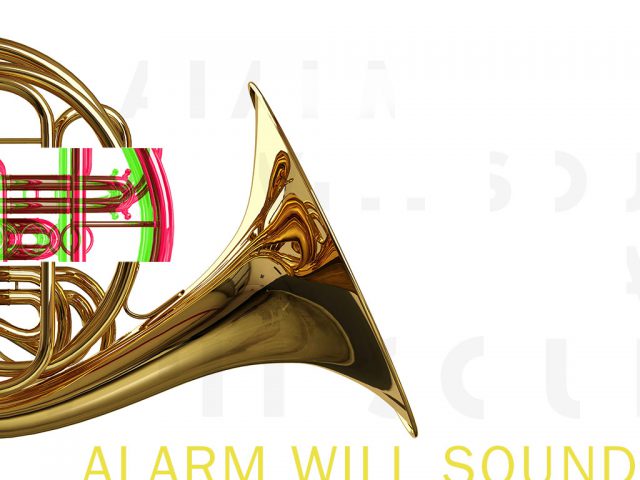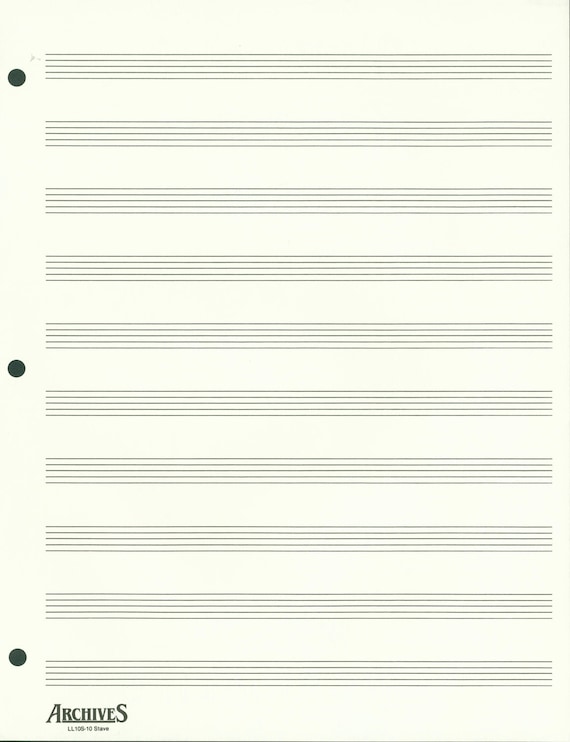

I never, ever write music by hand. Never.
Ok, almost never.
It’s always done by plugging notes into Sibelius on my laptop, playing them on a MIDI keyboard into my laptop, or shouting them into a microphone connected to my laptop. After it’s inside my laptop I hit play in whatever software I’m working in, listen over and over, and then add some more. That’s what works for me.
I’m not against writing music by hand, but there’s something about sitting down to a piece of blank staff paper that seems so intimidatingly historic. Perhaps the physicality of the document suggests permanence, my mind easily imagining some goggle-eyed figure in a post-apocalyptic hazmat suit sifting through the rubble that was once Park Slope and plucking out a tattered sheet of lined paper that serves as a window into a richer, more emotionally-luxurious past. The notes I write on this paper must serve as a surrogate ambassador to this artistically decrepit future. How could one ever live up to that fantasy?
Additionally, there’s just something so damn composerly about putting pen (or pencil) to paper. Back before I found my creative groove—which didn’t really begin until my mid-20s—I succumbed to that silly notion that a composer hears their ideal music in their heads and from there it’s just a matter of jotting it all down. It took me years to realize that my struggle with creativity was easily circumvented by finding other ways to create music. I started making music with a sampler and some pedals about ten years ago, progressed onto software a few years later, and haven’t looked back since.
So imagine my surprise this last summer when my new Alarm Will Sound piece began on a scrap of paper:
Ok, I’ll admit it. The one good thing (at least to me) about going all analog-composer-style is that you can find yourself, struck by desperate inspiration on the R train, with nary a laptop to be found, just a chewed-up pencil and the bottom third of your brass quintet music, and you have a way to get it down. Sometimes you gotta let ‘er Rrrrrriiiiip! and allow the music the pour out via your Lisa Frank #2 pencil.
Now before this starts to sound all romantic-urban-composer-story, let me clear up a couple things. I wasn’t sitting around willy nilly, staring at the Dr. Zizmor ad, when a symphony of sounds blossomed in the inspiration part of my brain. I was mulling over some text sent to me by my frequent collaborator, the wonderful lyricist Royce Vavrek. You see, another part of discovering what type of composer I was—in addition to being far from the quill-and-paper variety—was my realization that I work quite well with something to work from: particularly an audio sample or some text. This might seem obvious to many seasoned composers, but it was not part of my misguided ideal of how composers created when I used to struggle with my blank staff paper. And so, while mouthing through this fine Vavrek on my crowded R train, the rarely-happens happened: both the thematic core and the overall vibe of the piece came together around a snippet in my head. I had to break my no-paper streak and jot like my life depended on it. That fevered jot eventually became a piece called A Song for Wade (This is not that song), a piece that Alarm Will Sound has played several times and will eventually become part of a larger opera.
I had completely forgotten about the paper-based origins of this piece when I came across this torn scrap about a month ago, while cleaning my apartment. As I recollected on the origins of this funny little scrap, I thought that in a way I was rather like that post-apocalytic scavenger, finding this timeworn specimen from the past. What does this historic document tell us about this man, his time, his circumstances, his passions? Whoever wrote this must have been a very serious composer. I’ll bet the music came flowing out of him onto his paper so fast his fingers could barely keep up. That’s how music is made. And apparently, the piece is titled: Wexford Carol.
Obviously that’s all absurd. I’m no more serious a composer for having written the piece on paper. It’s no more serious a piece of music. But I can’t help but feel a bit more pride, a bit more legitimacy as a composer, as superficial as that may be. This snippet is all I physically wrote on paper, the rest being written in Sibelius, but it’s somewhat of an ironic keepsake of mine, honoring both my progress and my fallacies. As someone who had to get over the fear of the blank staff paper, it was an odd little victory of mine to have a new piece born out of that antiquated method, even though it doesn’t actually give the piece any more value.
You can hear what became of this little scrap, from our Soundcloud page (the scrap moment is at 2:25):
This coming Friday, April 26th 2012, Alarm Will Sound will be performing my short monodrama, A Song for Wade (This is not that song), on the TownMusic series at Town Hall Seattle, along with works by John Adams, Edgar Varese, Stefan Freund, The Beatles, and Aphex Twin.

